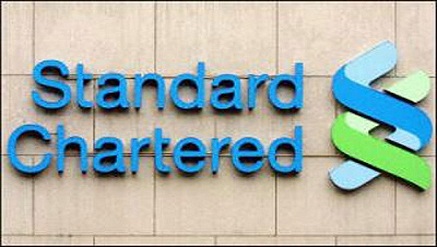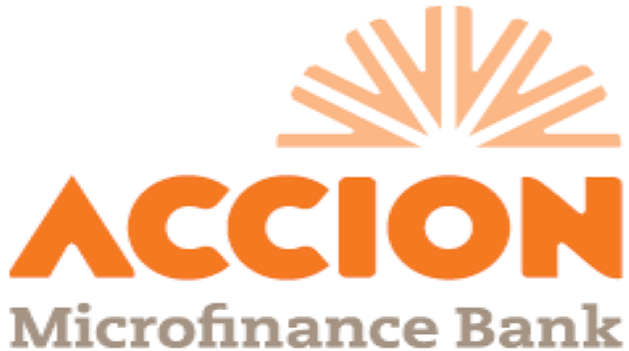E-Financial
Standard Chartered Unveils Consumer Price Tracker

A new devise to capture real-time price trends in the Nigerian formal and informal markets has been officially unveiled by Standard Chartered Bank (SCB) to enable it obtain accurate price data, which it said have always been a challenge in developing economies.
The technique, Standard Chartered-Premise Consumer Price Tracker (SC-PCPT), is being implemented in partnership with Premise and adopts innovative crowd-sourcing technology to gather real-time, on-field data on prices of grains/flours and starchy vegetables, which are key drivers of this price trend.
In a teleconference, Razia Khan, head, Africa Macro Research, SCB, UK, told newsmen that ahead of official Consumer Price Index (CPI) releases, “there are often limited means of observing underlying price trends, which contributes to information asymmetry and to greater uncertainty and costs for market participants.”
However, “by adopting innovative crowd sourcing technology, we provide a potential solution to this problem.”
The method, beginning with Nigeria in the African continent, will concentrate on the more populous centres of Lagos and Kano, alongside a few Abuja-based observations, while it would be extended to other African economies over time.
Bola Adesola, SCB chief executive officer, disclosed that over 350 people are engaged in capturing price information with their smartphones, taking photographs of food staples and their price tags (where available or information is taken) and uploading them to a central database.
According to her, “each week, price information on 21,000 data items is captured in this way. Geo-tracking provides location information. Participants are paid through top-up mobile phone credits. This allows for real-time collation and understanding of price trends and their geographic dispersion much sooner than it is likely to be available from any other source.”
This effort becomes necessary in view of the increased investment in Africa, which led to demand for better data, while “micro-level data is needed to support or refute big macro revisions.
Meanwhile, the August data analysis showed no significant effect of the Ebola outbreak on the Nigerian economy, owing mainly to government’s effort at containing its spread, the bank said.
Nevertheless, the bank said the exercise is not meant to create a new Nigerian CPI but, “as a grassroots data collection effort that allows us to engage better with local communities, it is aimed primarily at obtaining more accurate price information for a few staples.
“Over time, it will likely be possible to extend the price observations to other items. Through the innovative use of technology, we hope to resolve an age-old problem – information asymmetry – in a way that will allow us to deepen our understanding of the Nigerian economy.”
It noted further that “rapid real GDP growth and increasing investor interest in the region have highlighted the extent of the persistent data gap. Until now, the publication of high-frequency data for key African economies has not kept pace with expanding investor interest.
“This year alone, Nigeria, Zambia and Kenya announced sizeable revisions to their GDP, ranging from 20-89 percent. While the need for timelier rebasing of GDP data is now commonly accepted, there is also a growing realisation that better micro-level data is needed to complement this.
“Micro-level data can provide an additional check on large macro revisions, supporting or refuting what was previously believed. Greater investor involvement in individual markets also creates demand for more robust data. In order to scale up investor involvement in any market and attract greater capital flows, data availability needs to be enhanced.”
E-Financial
Zenith Banks Leads as 8 Banks Suffer N156Bn Impairment Charges

Eight leading Nigerian banks collectively set aside N156 billion as impairment charges on their credit and financial assets, marking a significant financial impact amidst a challenging economic environment, in the opening quarter of 2025.

Known commonly as loan losses or credit impairments, these charges highlight the banks’ defensive measures against risks arising from inflation, naira depreciation, and tightened liquidity affecting consumers and businesses alike.
The level of impairment varied considerably across institutions, reflecting divergent risk appetites and credit management practices.
Zenith Bank led with the highest provision of N49.38 billion, an 11.8 percent reduction from the previous year’s N55.97 billion.
This decline may suggest enhanced asset quality or more rigorous loan recovery tactics.
Broken down, loans and advances contributed N35.95 billion to impairments, while investment securities and treasury bills added N7.1 billion and N2.16 billion respectively.
Despite heavy provisioning, Zenith recorded a notable 20.7 percent increase in post-tax profit, soaring from N258.34 billion to N311.83 billion.
Similar trends emerged at First HoldCo, which posted N37.25 billion in impairment (down 11.2 percent), driven mainly by loans and advances provisions of N41.23 billion.
Offsetting this were write-offs and reversals that mitigated losses.
First HoldCo’s profit, however, fell to N171.10 billion from N208.11 billion.
Access Holdings and Guaranty Trust Holding Company also demonstrated reduced impairment charges, indicating stronger credit monitoring.
Access’s net provision dropped 4.5 percent to N21.77 billion, while Guaranty Trust’s impairment stabilized near last year’s N13.42 billion figure.
Yet, Guaranty Trust’s profit plunged 43.6 percent to N258.03 billion, a striking contrast to other banks’ profit growth.
On the other hand, United Bank for Africa (UBA) faced a staggering 332.2 percent surge in impairment, from N3.28 billion to N14.18 billion—pointing to amplified credit risks possibly driven by external economic pressures.
Nonetheless, UBA recorded a 33.1 percent profit uptick to N189.84 billion.
FCMB’s impairment charge fell notably by nearly 60 percent to N9.52 billion, aided by significant recoveries of previously written-off loans, boosting its profit to N32.23 billion.
Meanwhile, Fidelity Bank and Wema Bank posted sharp rises in impairment—285.8 percent and 64.7 percent increases respectively—reflecting heightened write-downs that underscore growing risk exposure amidst portfolio expansions.
Overall, while the cumulative impairment charge diminished by 5.2 percent compared to Q1 2024, individual bank results were mixed, embodying the varied strategies and external pressures in Nigeria’s banking sector.
E-Financial
SEC Flags FF Tiffany as Ponzi Scheme

Securities and Exchange Commission (SEC) has revealed plans to commence investigation into the activities of an entity operating under FF Tiffany, allegedly running a fraudulent investment scheme that has defrauded citizens.

A statement by SEC on Tuesday in Abuja said preliminary information revealed that the scheme, which promised investors unusually high and unrealistic returns, had resulted in the loss of several billions of naira.
The SEC said it viewed the activity as a threat to investor confidence and the overall integrity of the financial system.
The commission assured the public that it was working closely with law enforcement agencies and other relevant bodies to bring everyone involved in the unlawful operation to justice.
According to SEC, those found culpable will be prosecuted in accordance with Investment and Securities Act (ISA) and regulatory provisions.
SEC reiterated its earlier warnings to the general public to desist from engaging in Ponzi or unregistered investment schemes that promised guaranteed or exaggerated returns.
”These schemes are not registered with the SEC and do not offer investor protection under the law.
“The commission is currently investigating 79 schemes and will make a statement on its findings at the conclusion of the investigation,” the SEC said.
The commission encouraged investors to conduct due diligence and verify the registration status of any investment firm or product by visiting the SEC website or contacting the commission directly through official channels.
SEC said it remained committed to its mandate of protecting investors, ensuring fair practices, and maintaining confidence in Nigeria’s capital market.
E-Financial
AccionMonie App to Empower Low-Income Households

Accion Microfinance Bank has unveiled AccionMonie, a next-generation digital financial services platform aimed at empowering individuals, micro, small, and medium enterprises (MSMEs), as well as low-income households across Nigeria.

Speaking at the official launch in Abuja, Chief Executive Officer of Accion MfB, Taiwo Joda, described the introduction of AccionMonie as a significant milestone and a testament to the bank’s culture of innovation, designed to meet the evolving needs of its customers.
“At Accion Microfinance Bank, we believe in the potential of every MSME to drive inclusive economic growth. That is why we are committed to empowering them with the financial support they need to grow, innovate, and make a lasting impact in their communities and beyond,” Joda said.
He added that the app provides instant access to essential services including loans, savings, and other forms of financial support.
According to Joda, AccionMonie is a strategic component of the bank’s “Always There to Lend You a Hand” campaign, which underscores its commitment to small business development and the economic upliftment of underserved households. The campaign positions Accion MfB as not only a financial institution but also a trusted partner in its customers’ journey to prosperity.
Highlighting the economic role of MSMEs in Nigeria, he noted that with an estimated 37 million MSMEs, the sector accounts for 86% of employment and contributes 48% to Nigeria’s Gross Domestic Product (GDP). However, these enterprises continue to face major challenges such as limited access to finance, inadequate infrastructure, and an unfavourable business environment.
Also speaking at the launch, the bank’s Chief Commercial Officer, Stephen Olalere, said the combination of AccionMonie and the bank’s expansive network of over 74 branches across 12 states will help bridge the gap in financial service delivery to small businesses.
“The platform’s user-friendly features are designed to simplify payments and offer vital support to businesses and individuals alike,” he said.
Paul Ehiagbonare, Chief Digital Officer of the bank, described the launch as a bold step toward digital leadership and financial empowerment.
“For us, AccionMonie reflects customer empowerment through digital tools and technologies. It offers a range of customer-focused features designed to promote financial inclusion,” he said.
One of its standout features is Save2Loan, which allows users to save between ₦50,000 and ₦250,000 over a 90-day period and become eligible for a loan worth twice their saved amount. This, Ehiagbonare explained, will help promote a savings culture while enhancing credit access.
In addition, customers can conveniently fund their AccionMonie accounts using any debit card, eliminating the need for physical visits or long queues in banking halls.

 Broadcasting3 days ago
Broadcasting3 days agoNigeria Week Ahead: Inflation, Oil and Naira in focus

 News3 days ago
News3 days agoEFCC: Accusations Against Our Chairman Are Baseless and Misleading

 Telecom2 days ago
Telecom2 days agoNCC Introduces N10m Licence Fee for Bulk SMS Service

 Telecom2 days ago
Telecom2 days agoMTN Nigeria Targets $1Bn Cloud Market with Largest Modular Data Centre

 General News2 days ago
General News2 days agoWoodhall Capital and Partners Launch ₦1.5Bn Fund

 E-Business2 days ago
E-Business2 days agoFirm Highlights Top Risks of Quantum Computing

 General News2 days ago
General News2 days agoBurna Boy Distances Himself from Meme Coin, Labels Crypto as Fraud

 Telecom2 days ago
Telecom2 days agoPAT Taps Osi as CEO



























